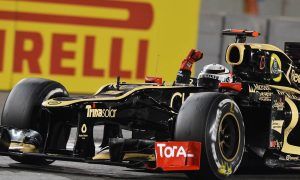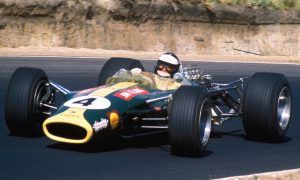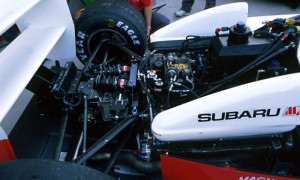Mark Donohue
Born in 1937 in New Jersey and nicknamed "Captain Nice," Mark Donohue had pretty much retired from motor sport before his Formula One career even got off the ground. With a degree in Mechanical Engineering, what set him apart from his peers - other that being a prodigious talent behind the wheel of course - was his mechanical sympathy with the cars he drove. Along with team boss Roger Penske, they changed the face of Indy racing with their attention to detail and meticulous approach. Not only did everything in the garage have to be spick and span, polished to within an inch of its life, Donohue really studied what his cars were doing and understood chassis dynamics at a time when an American racer's vocabulary included words like "push" and "loose" but very little else. Donohue even wrote a book about it in 1974 called The Unfair Advantage which still makes for an interesting read today.
His career was inextricably linked to Penske, for whom he raced the beautiful Lola T70 and Ferrari 512M in Endurance events. He also raced for Penske in TransAm where there was a major controversy after they raced a car that was massively underweight, thanks to having acid-dipped the chassis. Donohue brought Penske his first Indy 500 win in 1972 and the entrant's maiden NASCAR victory the following year. The two men then worked with Porsche on the 917-30 Can-Am car, one of the scariest and quickest racing cars ever built.
At the end of 1973, Donohue thought he'd retired from the cockpit, but he was lured back by the prospect of racing in Formula One for Penske's new team in 1974, having previously driven in the 1971 Canadian GP as a one-off for McLaren in which he finished third. However, tragedy struck in practice for the 1975 Austrian GP when Donohue's car left the track and resulted in the death of a marshal. Donohue himself was conscious and talking when he was taken to Graz hospital, but he fell into a coma and died from a brain haemorrhage the next day.
An undoubted talent, a thinker ahead of his time, Mark Donohue's career fits into the category of "what might have been."







